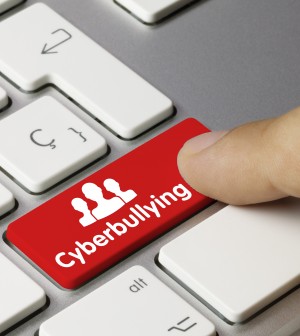- FTC Sues AT&T for Promises of Unlimited Data
- Apple Consumers Are Paying a Premium on Old Technology
- Tesla - Latest Lemon Lawsuit, Direct Sales and The Bottom Line
- Kaiser HMO - The Insider Truth You Will Hate to Learn
- The Truth About Oscars Pizza Guy and Ellen
- LA Auto Show - New Releases, Concepts and More
- Class Action Lawsuit Against BMW for Defective Auto Start Stop System
- More Audi Owners Complain on Twitter About Too Much Oil Consumption
- Audi is Hit With a Class Action Lawsuit for Defective Engines That Burn Oil
- Yelp’s Extortion and Strong-arming Business Practice
Are There Any Legal Consequences of Internet Trolling?

Cyberbullying and internet trolling have become a serious problem in the U.S. 20 states have already adopted laws related to the issue, but they are mainly designed to protect school-age kids.
So, how can we protect ourselves from internet trolls? Let`s first try to understand what trolling is. Urban Dictionary defines trolling as “the art of deliberately, cleverly, and secretly pissing people off, usually via the Internet, using dialogue”. Trolls like to send hateful and threatening messages, argue, sow discord or argue just because they enjoy the reaction their messages provoke. Trolls are not respected in
the online community, as they negatively affect the quality of online debates and discussions. Many websites, blogs and magazines turn off the ability to comment on articles as rude comments result in polarizing readers and misleading interpretation of the news or story.
So, trolling is bad for online discussions. But can it have legal consequences? Under federal law, there are no criminal sanctions for trolling. However, when trolling becomes more than disagreeing with someone`s opinion or comment, there`s not much you will be able to do about it.
When trolling involves stalking, harassment or bullying, then it can have legal consequences. However, it`s quite difficult to prosecute someone under current cyberbullying laws. That`s why prosecutors often use other laws to deal with online trolls, such as Interstate Communications Act and Computer Fraud and Abuse Act. Although, these statutes were not specifically designed to combat online trolling, so their legality can be disputable.
Even if clearer anti-trolling legislation comes up, it might threaten people’s right to free speech and fail. Some people even fear that their simple joke online might end up in prosecution. Thus, the reason why many bills have not passed yet is because of the way their wording was phrased. For instance, Arizona House Bill 2549 never passed because it contained the word “offend”, which was too subjective according to the bill’s opponents. The bill was designed to “prohibit the use of any electronic device with the intent to “terrify, intimidate, threaten, annoy or offend.”
European countries have their own methods of fighting against internet trolls. For instance, when Mr. Nimmo and Ms. Sorley harassed Ms. Criado-Perez (who was leading a successful campaign to get more women on English Bank Notes) on twitter, they were arrested and pleaded guilty under UK’s Communications Act. They were fined and jailed for 8 and 12 weeks. The UK might also pass new laws which will increase the maximum jail time for internet trolls from six months to two years.
Italian prosecutors not only go after trolls, but even threaten to prosecute social media sites which host anonymous hate. Italy launched an investigation on Facebook in 2013, when teenager Carolina Pichio committed suicide after being bullied and harassed on Facebook.
European Union also stands with many of its countries to fight against internet trolling. EU’s Istanbul Convention was aimed at protecting both men and women against stalking and “emerging concerns” such as cyberstalking.
Possible Penalties
When trolling turns into cyberbullying and cyber harassment, the law can and should intervene. Online trolls can face penalties for cyberstalking, criminal threats, bias intimidation and sexual invasion of privacy. The victims can sue trolls for intentional infliction of emotional distress or defamation.
How to fight against internet trolling?
Except for legal remedies, there are still other methods of combatting online trolling. First, website could regulate their users more aggressively and design policies to strip away anonymity online. Abusive comments violating community guidelines should be immediately removed. Police also could take online bullying and harassment more seriously, use forensic expertise to track down anonymous trolls. It`s very important to educate teenagers about the abuse and suffering internet harassment can cause. Parents should take cyber harassment and cyberbullying as seriously as they do drunk driving, and speak to their children about it more often.




